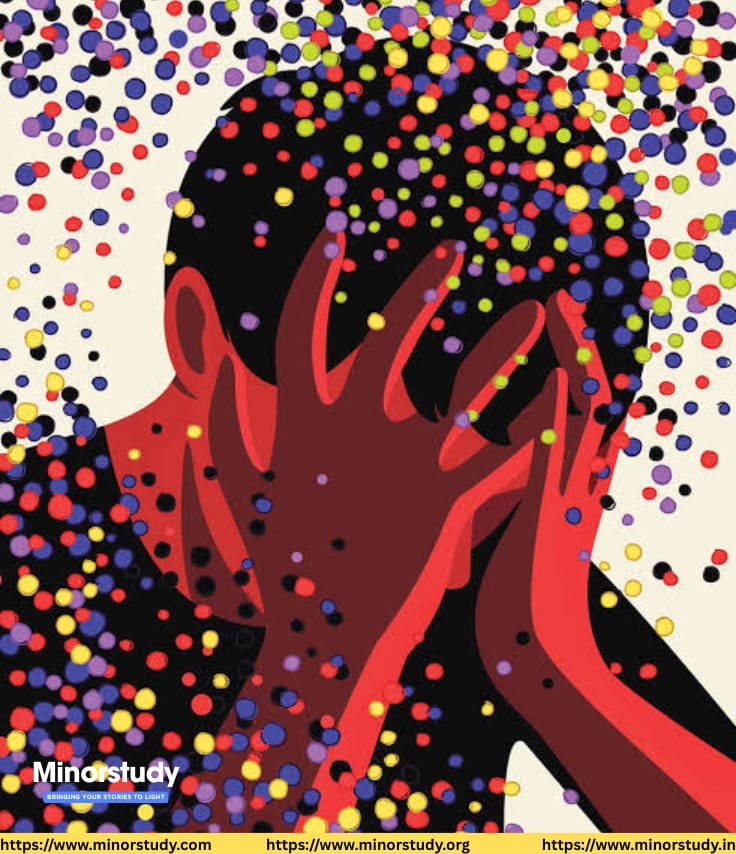🧠 7 Powerful Truths That Show Why Psychiatrists Are Lifesavers in a Troubled World
In an age where mental stress silently erodes health, success, and relationships, psychiatrists stand as the compassionate defenders of our inner peace. They don’t just treat mental illness; they help people regain hope, dignity, and control over their lives.
- 🧬 Who Is a Psychiatrist?
- 🕰️ Timeline: The Evolution of Psychiatry
- 📜 A Brief History of Psychiatry
- 📊 7 Empowering Facts About Psychiatrists
- ❓ FAQs: Common Questions About Psychiatrists
- Q1: What’s the difference between a psychiatrist and a psychologist?
- Q2: Do psychiatrists only treat “crazy” people?
- Q3: Can you visit a psychiatrist without a referral?
- Q4: Is medication always necessary?
- Q5: What is telepsychiatry?
- 📅 Observance & Recognition
- 🎯 Importance in Society
- 🧬 Importance in Daily Life
- 💞 Emotional & Human Significance
- 💐 Wishing Our Mental Health Heroes
- 📌 Important Points Summary
- 🏁 Conclusion: The Soul’s Physician
Let’s explore who psychiatrists are, why they are crucial in today’s world, and how their work impacts millions daily—often without fanfare.
🧬 Who Is a Psychiatrist?
A psychiatrist is a licensed medical doctor (MD or MBBS with specialization) who diagnoses, treats, and helps prevent mental, emotional, and behavioral disorders. Unlike psychologists, psychiatrists can prescribe medication and perform medical interventions alongside talk therapy.
Their specialties include:
Depression and anxiety
Bipolar disorder, OCD, PTSD
Schizophrenia and psychosis
Addiction and substance use disorders
Child, adolescent, and geriatric psychiatry
🕰️ Timeline: The Evolution of Psychiatry
| Time Period | Key Milestone |
|---|---|
| Prehistoric Times | Mental illness seen as possession; exorcism and trephination used |
| 5th Century BCE | Hippocrates suggested mental illness had biological causes |
| Middle Ages | Rise of asylums; mental illness misunderstood as evil |
| 18th Century | Moral treatment of mentally ill started in Europe |
| 19th Century | Psychiatry became a medical discipline |
| 20th Century | Freud’s psychoanalysis, rise of antipsychotics, and deinstitutionalization |
| 21st Century | Rise of telepsychiatry, brain imaging, neurobiology, and personalized care |
📜 A Brief History of Psychiatry
Psychiatry’s roots go back to ancient civilizations. In India, Ayurveda classified mental disorders as “Unmada” (insanity) and proposed herbal and spiritual treatments.
In the Middle Ages, people with mental illness were locked in asylums or accused of witchcraft. The turning point came in the 18th century, when reformers like Philippe Pinel (France) and Dorothea Dix (USA) advocated for more humane treatment.
By the 20th century, Freud introduced psychoanalysis, followed by new therapies and medications. Psychiatry began shifting from custodial care to clinical science and compassionate counseling.
📊 7 Empowering Facts About Psychiatrists
🧠 Psychiatrists are medical doctors, not just therapists—they can diagnose, prescribe, and manage medications.
💊 They use both therapy and medicine, such as SSRIs, antipsychotics, and mood stabilizers.
🧍♀️ One psychiatrist may impact hundreds of lives directly and thousands indirectly (families, workplaces).
🌍 According to WHO, 1 in 8 people globally lives with a mental disorder—highlighting the huge need.
🧘♂️ Psychiatrists also promote mental wellness, not just treat illness.
🧒 Many specialize in children’s mental health, preventing long-term issues early in life.
🧑⚖️ They play critical roles in courts, military, disaster response, schools, and prisons—supporting society’s most vulnerable.
❓ FAQs: Common Questions About Psychiatrists
Q1: What’s the difference between a psychiatrist and a psychologist?
A psychiatrist is a medical doctor who can prescribe medication and offer treatment for serious mental disorders. A psychologist provides talk therapy but does not prescribe medicine.
Q2: Do psychiatrists only treat “crazy” people?
No! Psychiatrists treat everything from mild anxiety and insomnia to trauma and depression. Most of their patients are ordinary people struggling with common life issues.
Q3: Can you visit a psychiatrist without a referral?
In most countries, yes—but it depends on your healthcare system. In India and many countries, you can consult them directly.
Q4: Is medication always necessary?
Not always. Some issues are resolved with therapy, lifestyle changes, and counseling, while others need short- or long-term medication support.
Q5: What is telepsychiatry?
Telepsychiatry allows patients to consult psychiatrists online, making mental health support accessible even in remote areas.
📅 Observance & Recognition
Although there is no universal “Psychiatrist Day,” several global observances highlight their work:
World Mental Health Day – October 10
World Suicide Prevention Day – September 10
Mental Illness Awareness Week – First full week of October
World Bipolar Day – March 30
On these days, awareness campaigns, mental health seminars, and free consultation drives are conducted to honor the healing work of psychiatrists and normalize seeking help.
🎯 Importance in Society
🩺 In Medicine:
Psychiatrists collaborate with other doctors when:
Depression affects heart disease recovery
Anxiety worsens diabetes or IBS
Substance use damages brain function
Trauma affects physical healing
🌍 In Society:
Psychiatrists reduce:
Workplace burnout
Family conflict
Suicide rates
Crime related to untreated disorders
They enable students to succeed, parents to cope, and elderly to age with dignity. In war, natural disasters, and even pandemics like COVID-19, psychiatrists are mental health frontliners.
🧬 Importance in Daily Life
Today’s life is:
Fast-paced
Digitally overwhelming
Socially isolating
Psychiatrists help individuals navigate:
Workplace pressure
Parenting stress
Grief and loss
Relationship breakdowns
Overthinking and insomnia
PTSD from abuse or trauma
They help people return to life after the mind says, “I can’t do this anymore.”
💞 Emotional & Human Significance
You may never know:
The student who didn’t drop out after their psychiatrist helped with depression
The mother who didn’t end her life because someone finally listened
The addict who got a second chance at life after psychiatric rehab
The child with ADHD who went on to succeed with the right care
Psychiatrists treat what cannot be seen in blood tests—but is deeply felt.
They heal:
Broken thoughts
Unseen wounds
Silent cries
💐 Wishing Our Mental Health Heroes
🌿 “To the minds who care for other minds—thank you for restoring hope when all seemed lost.”
🧠 “Happy World Mental Health Day—because even the brain deserves a doctor!”
💖 “Here’s to psychiatrists—who speak the language of silence, and translate it into healing.”
📌 Important Points Summary
Psychiatrists are doctors of the mind, bridging medicine and empathy.
They treat over 300 types of mental health conditions.
Mental illness is not weakness—it’s illness, and psychiatrists remove the stigma.
Society thrives when mental health is prioritized.
Their role in schools, hospitals, courts, and communities is irreplaceable.
🏁 Conclusion: The Soul’s Physician
A psychiatrist may not wear a cape—but their work saves lives in silence. They don’t heal broken bones—they mend broken minds. In a noisy, overwhelming world, they teach us to pause, process, and heal.
Let’s not wait for rock bottom to reach out. Your mind matters. Your feelings are valid. Help exists.
And the people who give us that help?
They are called psychiatrists.









5dtcno